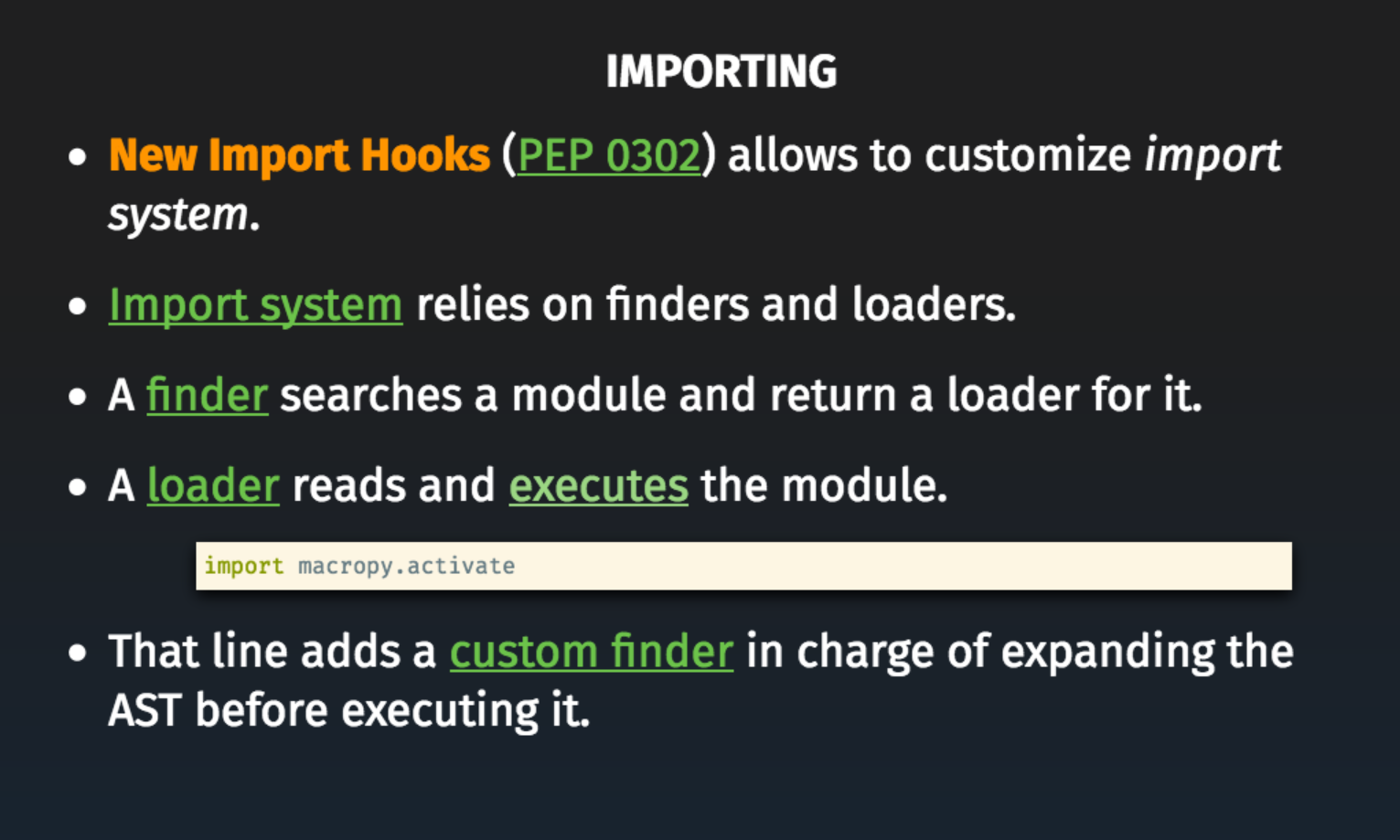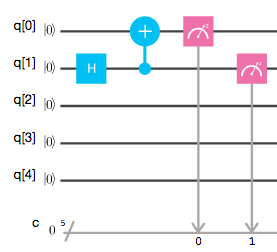About me

- me
- Salvador de la Puente González
- github
- http://github.com/delapuente
- @salvadelapuente
- site
- http://salvadelapuente.com

Por Salva de la Puente, PyConES 2016

Por Raul Cumplido, PyConES 2016
This is how a quantum experiment looks alike in Qiskit:
from qiskit import *
def bell():
qr = QuantumRegister(2)
cr = ClassicalRegister(2)
qc = QuantumCircuit(qr, cr)
qc.h(qr[1])
qc.cnot(qr[1], qr[0])
qc.measure(qr, cr)
return qc
result = execute(qc, backend='local_qasm_simulator').result()
result.get_counts()
# will print {'counts': {'00': 534, '11': 490}}
Clear but verbose.
How about a specific language for creating circuits?
# in circuits.crc crc bell q[2] -> c[2]: - :h: q1 - q1 :cx: q0 end
More succint and funnier to write...